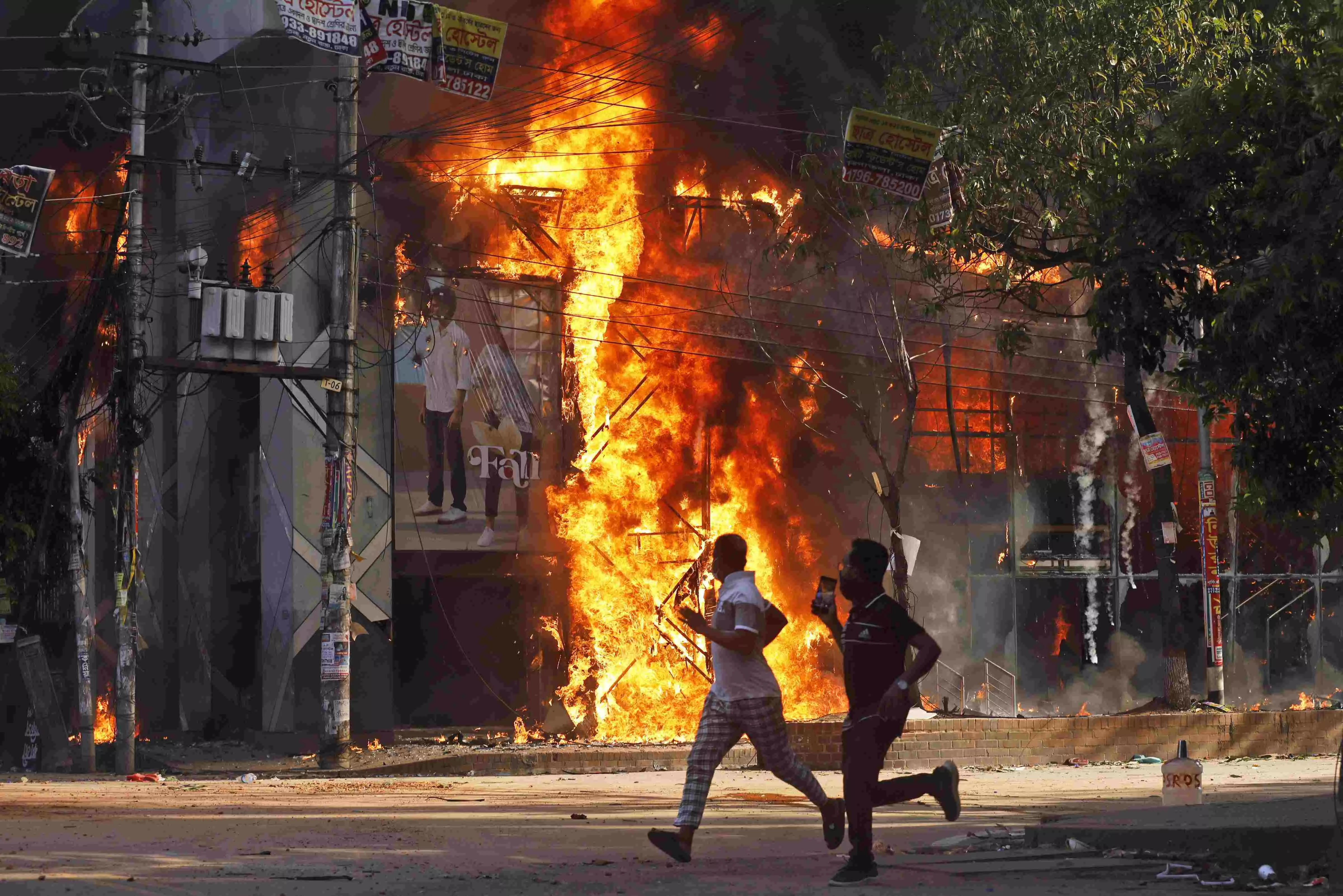A political quicksand

What started as a protest against the extensive quota allowed to kins of freedom fighters of Bangladesh in civil services jobs has now transpired into a full-blown crisis demanding no less than a ‘regime change.’ Bangladesh, governed by Sheikh Hasina-led Awami League, appears to stand at a precipice of political change. As the protestors initiated a “non-cooperation” movement on Sunday, at least 72 people were killed in fresh round of clashes, and the government has imposed a nationwide curfew—asking citizens to deal with protestors with a firm hand.
The Awami League government was very much on the same page on the issue of curtailing reservations for freedom fighters of the Liberation War. One may recall that back in 2018, the government itself had scrapped the quota system, albeit as a response to students’ protest. It was the High Court that reinstated the quota. The pertinent question is: if the government was willing to concede to the demands of the protestors, and the Supreme Court eventually came out with a favourable outcome for both the parties, what was the root of the discord?
It is perhaps here that the Hasina government failed politically and tactically. It could not sense the gravity of the protest fueled by intense anger and spirit of students. On the contrary, the Bangladesh PM made a serious mistake by equating protestors with ‘razakars’ — a derogatory term used for a militia that went against the 1971 Liberation War. Her remark clearly defied the logic of tactics, enhancing the anger of students multifold. The PM could not anticipate the political fallouts of the manner in which she handled the protests. On the opposite end of the spectrum, while the students claimed their protests did not have any political inclination, the anti-government forces managed to pull their pieces together and weave the narrative of a hostile government. Their efforts were further boosted by the brutal images of police firing on students. Even in the fresh rounds of clashes, Sheikh Hasina has dubbed the protestors as ‘terrorists’, and their protest as an act of ‘sabotage’.
When the protests already manifested into a full-blown political crisis, Sheikh Hasina said she wanted “to sit with the agitating students of the movement and listen to them”, and that she wanted “no conflict.” For protestors, these words hold little meaning as they have already witnessed considerable violence, leading to more than 200 deaths and over 10,000 detentions. Consequently, they have turned down the PM’s offer of a dialogue. Their sentiment is echoed in the words of Nahid Islam, one of the leading coordinators of the protest, who said that “the time to ask forgiveness has passed. When there was still time, the government conducted block raids to arrest and torture students." They have announced “a one-point demand for the resignation of the current government” and called for the formation of an “inclusive national government.”
This is indeed an extreme demand, and may not bode well for the future of the country. Apparently, Bangladesh doesn’t have a viable political alternative to the Hasina government presently. The intended ‘regime change’ can push the nation in the realm of uncertainty. However, this does not mean that the government can be conveniently absolved of the allegations of violent misdoings. The protestors should establish a dialogue with the government to press for non-negotiable accountability and a time-bound probe into the matter. There are democratic ways to deal with the excesses of a government functioning under a democratic framework, before the exhaustion of which extreme steps should be avoided.
As the government seeks to handle the protests politically by organising rallies as a countermeasure, and pitting itself and the nation against the protestors, it should understand the limitations of such an approach. The government needs to win the confidence of students rather than pushing their apprehensions under the carpet. Experts suggest that while demands for Hasina’s resignation are extreme, the government can at least take bold steps like scrapping the Bangladesh Chhatra League — the student wing of Awami League that allegedly played a major role in the violence during protests. However, any meaningful conciliation can be made only after a comprehensive dialogue between the protestors and the government.



